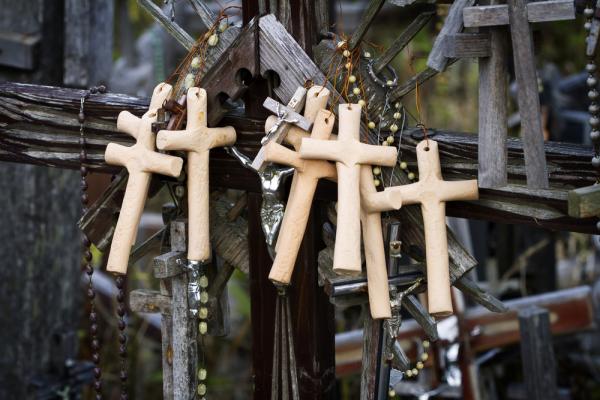When I read my Bible and Twitter side by side, I want to denounce much of what we’ve seen and heard from our president-elect. Christians can — and should — hold leaders of a democracy to basic standards of truth-telling, love of neighbor, and the honoring of the image of God in all.
Donald Trump has transgressed these and other moral standards in full view of the public. We should say so.
How can we faithfully pray for our soon-to-be president if we don’t first see him for who he’s shown himself to be? We have what Marilyn Chandler McEntyre calls a “responsibility not to tolerate lies” — to resist the normalization of dangerous behavior and speech. Being honest about reality is a primary role Christians can play in society.
At the same time, I’ve got a growing conviction that just as Christians ought to speak out against injustice and wrongdoing, we need to speak up for justice and righteousness. As we name and work against xenophobia and the devaluing of women, we need to cast a vision of love and respect for all, modeling how citizens might embody that vision.
Put another way, the prophetic task of all believers is not just to react to reality rightly named, but to reframe it in the light of a grander vision of the future. The job of all Christian contemplatives and activists is both to resist — and to reshape.
In Pedagogy of Hope, Paulo Freire wrote:
There is no authentic utopia apart from the tension between the denunciation of a present becoming more and more intolerable, and the “annunciation,” announcement, of a future to be created, built – politically, esthetically, and ethically – by us women and men.
Living “in between the times” — especially now, mid-Advent and before Jan. 20, 2017 — we have the responsibility to name the present for what it is and the opportunity to describe the future as it can be, should be, is already a little bit today, and one day will be in full.
To resist and reshape is the prophetic task entrusted to every believer who has received the Holy Spirit. And we lovers of God can faithfully do this only insofar as we’re steeped in the biblical narrative, where the author of a future vision of shalom tells us what to expect, what to work for, and how to posture ourselves in the waiting.
The word “prophet” usually conjures up images of a future-seeing storyteller, but the biblical prophets frequently looked back to what God had already said and amplified those words to the people. They called people to what Bishop Untener named “a future not our own.”
Take Jeremiah 33:14-16, for example:
The days are surely coming, says the LORD, when I will fulfill the promise I made to the house of Israel and the house of Judah.
In those days and at that time I will cause a righteous Branch to spring up for David; and he shall execute justice and righteousness in the land.
In those days Judah will be saved and Jerusalem will live in safety. And this is the name by which it will be called: “The LORD is our righteousness.”
In his Letter from a Birmingham Jail, Dr. Martin Luther King, Jr., wrote:
Just as the prophets of the eighth century B.C. left their villages and carried their “thus saith the Lord” far beyond the boundaries of their home towns, and just as the Apostle Paul left his village of Tarsus and carried the gospel of Jesus Christ to the far corners of the Greco-Roman world, so am I compelled to carry the gospel of freedom beyond my own home town.
Dr. King saw a racism in the United States that stood against the Bible’s revealed future. Dietrich Bonhoeffer witnessed hate-filled rhetoric in Germany that set itself up against the righteousness of God. Mother Theresa was moved by poverty and a lack of belonging among people who were “shunned by everyone.”
Those prophets had to resist. Their love of God and meditation on Scripture compelled them to denounce “a present becoming more and more intolerable.” There’s no good reason for us to remain silent in the presence of the intolerable today, especially when an embodiment of unjust ideals reaches highest office.
But in resistance, prophets both ancient and modern also loudly declare what they stand for.
Dr. King said:
I just want to do God’s will. And He’s allowed me to go up to the mountain. And I’ve looked over. And I’ve seen the Promised Land. I may not get there with you. But I want you to know tonight, that we, as a people, will get to the promised land!
May we have eyes to see “those days” when the righteous branch will bring “justice and righteousness in the land” in full. May that promised land — of peace, well-being, love, belonging, and the unmediated presence of God — animate us. May God’s promised future give us language and a vision for reframing and reshaping current reality, as we prophets actively resist any who exalt themselves at the expense of others to the place of God.
Got something to say about what you're reading? We value your feedback!

